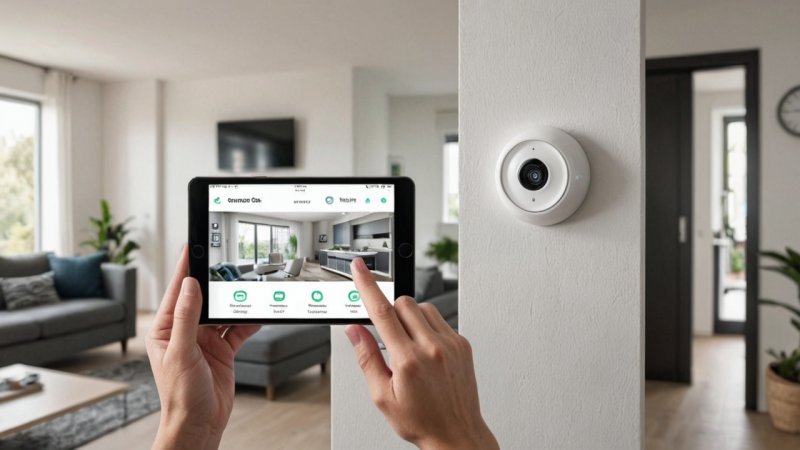In an era where technology permeates every aspect of our lives, smart homes have become increasingly popular. These interconnected devices offer convenience, efficiency, and security. However, they also expose us to potential cyber threats. Here are some essential tips to fortify your smart home against hackers and ensure your digital safety.
1. **Change Default Passwords**: One of the most crucial steps in securing your smart home is changing the default passwords on your devices. Many manufacturers use easily guessable default credentials, making it simple for hackers to gain access. Create strong, unique passwords for each device, ideally combining letters, numbers, and special characters.
2. **Regularly Update Firmware**: Just like your computer or smartphone, smart home devices need regular updates to function optimally and securely. Manufacturers periodically release firmware updates that patch vulnerabilities. Set reminders to check for updates or enable automatic updates if available, ensuring your devices are always equipped with the latest security features.
3. **Utilize Two-Factor Authentication**: Whenever possible, enable two-factor authentication (2FA) for your smart devices and accounts. This extra layer of security requires a second form of verification, often delivered to your mobile device. Even if a hacker manages to obtain your password, they would still need access to your second authentication method, making it significantly harder to breach your system.
4. **Secure Your Wi-Fi Network**: Your home Wi-Fi network is the backbone of your smart home ecosystem. Ensure that your Wi-Fi is protected with strong encryption (WPA3 is the latest standard) and a robust password. Additionally, consider creating a separate guest network for visitors, keeping your smart devices isolated from any potential vulnerabilities that may arise from unfamiliar devices.
5. **Disable Unused Features**: Many smart devices come with features that you may not use, such as remote access or voice control. If you don’t need these functionalities, consider disabling them. This reduces the potential entry points a hacker could exploit. Review your devices' settings regularly to ensure only the necessary features are active.
6. **Monitor Device Activity**: Regularly check the activity logs of your smart devices, if available. Monitoring any unusual behavior or unauthorized access can help you identify potential security breaches early. If you notice any unfamiliar devices connected to your network, take immediate action by removing them and changing your Wi-Fi password.
7. **Invest in a Smart Home Hub**: A smart home hub can centralize control of your devices and provide an additional layer of security. Many hubs include built-in security features that can help monitor and protect your devices from cyber threats. Investing in a reputable hub can enhance your smart home’s security.
8. **Educate Yourself on Phishing Scams**: Many cyber attacks begin with phishing scams that trick users into revealing sensitive information. Be cautious of suspicious emails or messages claiming to be from device manufacturers or service providers. Always verify the authenticity of such communications before clicking any links or providing personal information.
By implementing these tips, you can significantly enhance the security of your smart home. As technology continues to evolve, staying informed and proactive is crucial in safeguarding your digital life. Remember, a secure smart home not only protects your devices but also your personal information and peace of mind.
Top Tips for Securing Your Smart Home from Hackers
Discover essential tips to fortify your smart home against hackers and ensure your digital safety.






